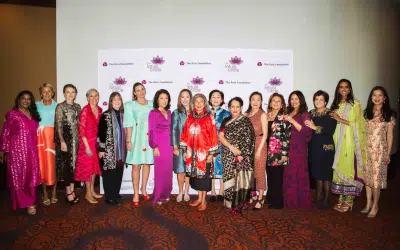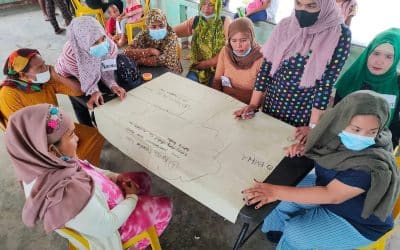Addressing Child Trafficking in Nepal: Bridging the Gap between Research and Practice
Program Year: 2024
Poverty, illiteracy, harmful cultural practices, gender-based violence, weak legislative mechanisms, biased registration processes, and an unregulated border with India fuel child trafficking in Nepal. Despite research and interventions, a critical gap between evidence and practice exists. On March 18, The Asia Foundation in Nepal held a launch event for our “Formative Research on Child Trafficking” project. With funding from the Department of State’s Office to Monitor and Combat Trafficking in Person, the Foundation is working with partners New Era and Shakti Samuha to generate evidence on the major sectors contributing to Nepal’s high rates of child trafficking, including the Adult Entertainment Sector (AES), cross-border trafficking, and core labor sectors (brick kilns, garment, and carpet manufacturing, and domestic work). The goal of the research is to inform the design of effective, culturally appropriate, and responsive programmatic interventions.
The launch event served as a crucial platform to acquaint stakeholders with the research objectives and potential implications for future initiatives combating child trafficking. During the event, Kewal Bhandari, secretary of the Ministry of Labour, Employment, and Social Security, underscored the pressing need to address the substantial disparity within the country’s societal framework. He emphasized that uplifting the marginalized community cluster at the socioeconomic bottom is imperative to effectively prevent child labor and child trafficking.
Critical communities combating child trafficking in Nepal, including relevant ministries, line agencies, development partners, civil society organizations, survivor groups, and private sector stakeholders, attended the event. They collectively committed to fair trade practices and expressed interest in supporting the formative research in the coming days.
“There is much research conducted on human trafficking, but they are just limited to exploring the factors that cause human trafficking. We expect this research to be a turning point in finding factors that contribute to trafficking, to address rights of trafficking victims, and to prevent trafficking from the grassroots level,” said Charimaya Tamang, a trafficking survivor who is a member of the National Committee to Combat Human Trafficking and a founding member of Shakti Samuha, the world’s first organization established and run by survivors.
The Latest Across Asia
News
April 25, 2024
Program Snapshot
April 18, 2024
News
April 17, 2024

2024 Lotus Leadership Awards
The Lotus Leadership Awards recognize contributions towards gender equality in Asia and the Pacific








